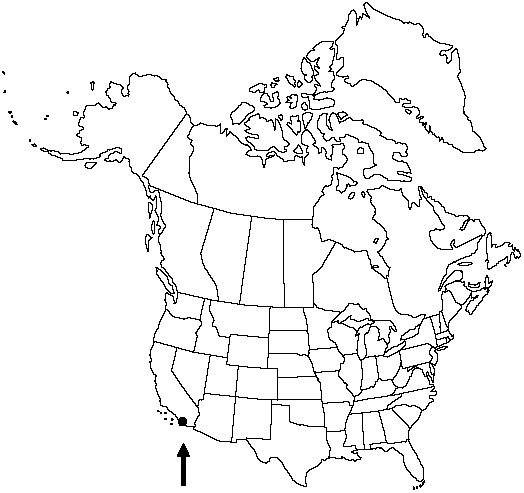Selaginella cinerascens
Fern Bull. 7: 33. 1899.
Plants terrestrial, forming loose to compact mats. Stems creeping, not readily fragmenting, upperside and underside structurally slightly different, irregularly forked, without budlike arrested branches, tips straight; main stem indeterminate, lateral branches determinate, ascending, 1–2-forked. Rhizophores borne on upperside of stems, throughout stem length, (0.17–)0.2–0.3 mm diam. Leaves monomorphic, not in defined pseudowhorls, loosely appressed, ascending, green, linear-lanceolate, (1–)2.5–3 X (0.25–)0.4–0.6 mm (leaves in secondary and tertiary branches smaller); abaxial ridges inconspicuous; base rounded and adnate or cuneate and slightly decurrent, glabrous, seldom pubescent; margins short-ciliate, cilia transparent, scattered, ascending, 0.02–0.75 mm; apex plane, blunt, acute to slightly acuminate (not distinctly bristled). Strobili solitary, 2–4 mm; sporophylls deltate-ovate to lanceolate-ovate, abaxial ridges not prominent, base glabrous, margins short-ciliate, apex not keeled, acute.
Habitat: Dry open places of clay soil, clayey-sandy soil, or in shade under shrubs and trees
Elevation: 0–200 m
Distribution

Calif., Mexico in Baja California.
Discussion
The light brown and grayish mats, short lateral branches, narrow stem, and short strobili distinguish Selaginella cinerascens from all other species in the flora, in which it has no close relatives. R. M. Tryon (1955) related S. cinerascens to S. arsenei Weatherby from Mexico. Selaginella cinerascens also closely resembles S. nivea Alston from Madagascar. In California S. cinerascens is known only from San Diego County.
Selected References
None.